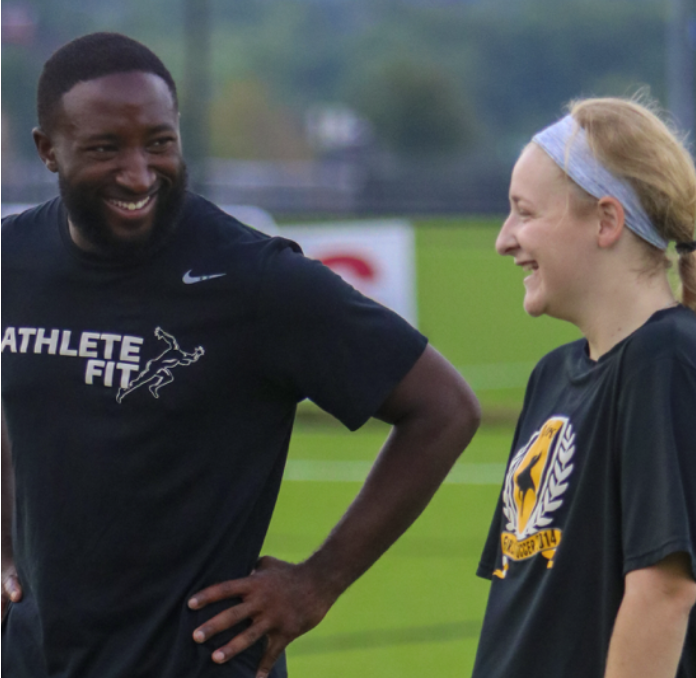
EMPOWERING ATHLETES
Coaches need to understand the science behind the performance aspects they chase. But often times, it's more important to understand the psychology behind the interactions with their players. Athletes are dealing with a lot more than sport in their lives, and from time to time, it's nice to help them gain a new perspective on their life outside of sport.
This is a collection of stories, discussions and ideas on the psychology of coaching. Below I will discuss some of the lessons I've learned over the last 3 decades of coaching young athletes. As coaches we must help our athletes...
- Understand and shape their MINDSET
- Assess INTEREST and build MOTIVATION
- Discover PASSION for the PROCESS
- Help them find their unique IDENTITY
- Forge CONFIDENCE and COMPETITIVENESS
My goal has never been to win games or develop champions. I simply want to help athletes use the lessons we learn in sport to build the confidence and competitiveness to overcome life's challenges.
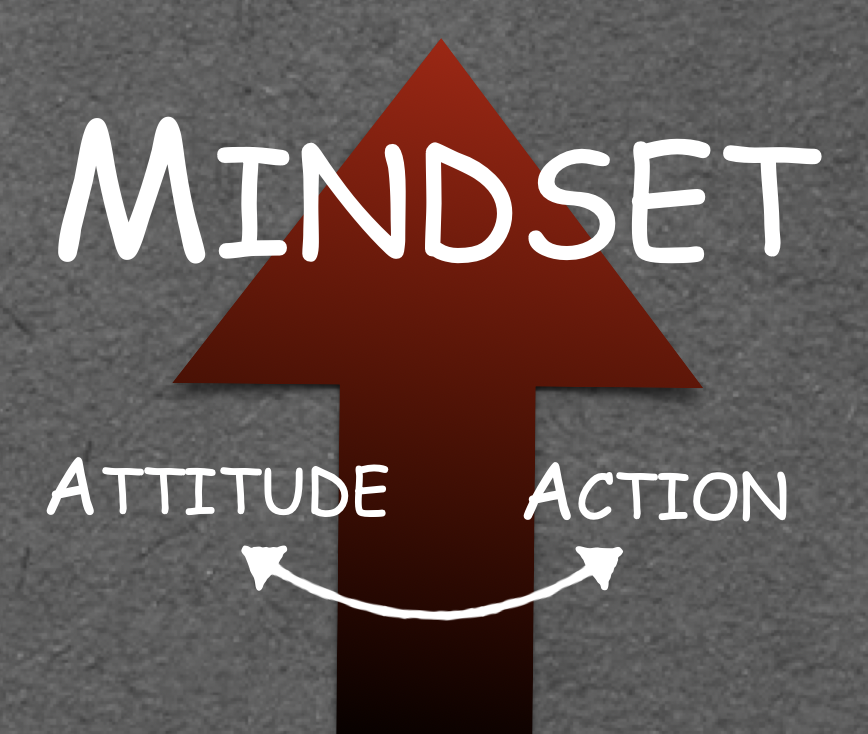
IT BEGINS WITH THE RIGHT MINDSET
In an attempt to evaluate the way I interact with our athletes, I dug into some research on mindsets, stress and teaching-learning styles. What I learned was truly eye opening…and game changing.
I began to notice little things that I say throughout the day that might be hindering the athletes or empowering the athletes. By reshaping the conversations during training, I have noticed a positive shift in their focus, effort and willingness to accept new challenges.
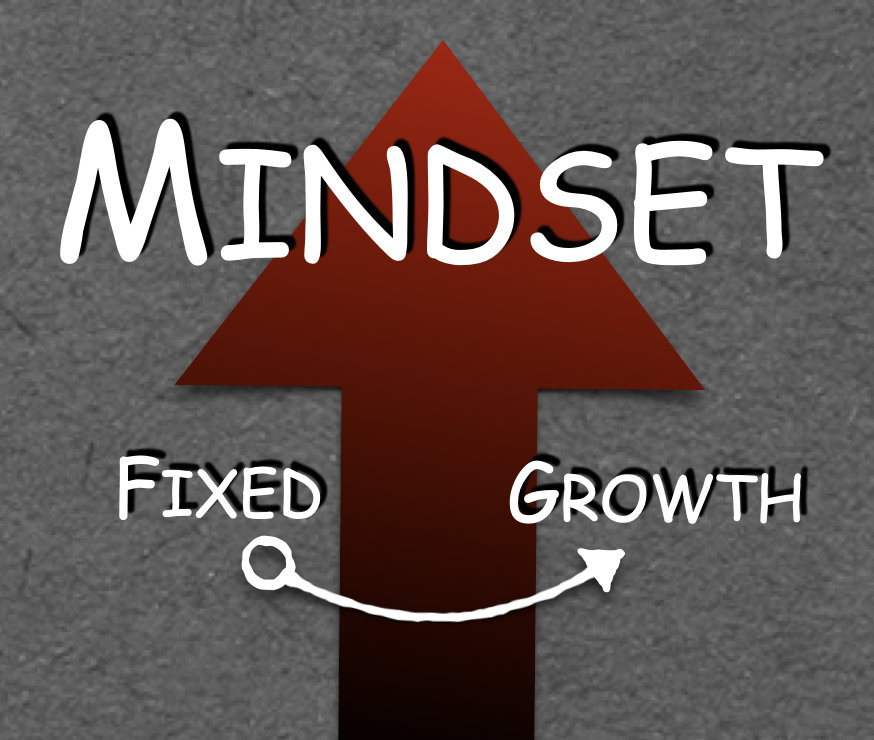
FIXED vs. GROWTH MINDSET
First, what is a mindset?
I like to think of it as the model we use to view the world, or how we gather incoming stimuli to assess how we feel, and guide our choices as we take action.
A fixed mindset basically means that our model of the world is fixed. Talent is inborn and can’t be developed…smart people were born smart, artistic people were born with it, people with limited athletic ability aren’t good at sports.
However, a growth mindset view of the world places more emphasis on the process. Ability is NOT inborn, but developed over time through deep work, focus, motivation and effort. And there are many studies that prove this.
Andrew Huberman defined growth mindset as, “Embracing challenge in a way that allows you to optimize performance.” He went on, expanding on Carol Dweck’s works discussing how we need to “develop the ability to distance our identity from the challenges we face.” Basically saying that if we grow up hearing that we are good at something (smart, athletic, skilled, etc.) our identity becomes linked to these comments. Over time, we become afraid to take on challenges that will improve our skill, because we may fail. And if we fail, people will begin to view us differently. Our identity would become shattered.
If we are praised for our performance, talent or ability, we begin to fear failure and stress creeps in.
In a fixed mindset view, we are tied to the idea that we were born with this innate talent for some task or ability that sets us apart. We don’t want to accept challenges that might lead to a poor performance. And through the lack of challenging stimuli, we don’t grow into what we could have become.
However, looking at it from a growth mindset perspective, we might change the way we give feedback to our athletes. Instead of praising talent or successful outcomes, we praise effort, focus, attention to detail, inquisitiveness, persistence, etc.
KEY POINT: In praising the attitude and action, instead of the person or performance, we lay the foundation of a growth mindset.
If we praise their attitude they had as they worked through difficulty, and the actions they took to improve, their identity, as they see it, is not tied to their performance, but to how well they worked through the process. They appriciate the praise they receive (even in failure) if they attempted something challenging with an attitude of learning through the experience.
Their mindset shifts towards understanding of the process of learning, the focused effort required to improve, and they become excited for the opportunity to be challenged. Not fearing temporary failure, they place their effort and attention mastering mastering the factors that lead to success.
When our athletes are performing well, what are we telling them? What are they thinking about themselves?
I have started to shift my feedback towards the effort or focus they put into the task. When they are doing well, I try to reward the process they took that brought success, but not the success itself. And when they are not doing well, I try to get them to understand that we have not dedicated enough time to these particular skills, and we are going to need to put more focus into the the small, but important components that I know they can master if they give it their full attention. I bring their attention to a single aspect that they do well, and then ask them to put the same sort of focus they used to develop that skill into these new skills we are developing.
Ultimately we want to reward the effort not the individual. We label the process, the effort and the persistence, not the athlete. We want them to be rewarded for being a dedicated, focused learner, who puts effort into the challenge of understanding and mastering the details.
I try to say things that bring about this mindset. I love your dedication to learning. You really work hard, battle and fight through the challenges. I’m so proud of how persistent you are. Even though you felt you had a bad session, I love the work you put in, your attention to detail, your desire to overcome the challenges I threw at you today.
It’s difficult, and we all want to praise the player after a great training session. But to truly impact them, and keep them focused on mastering their game, we have to motivate them to engage in the process, the challenge, the understanding of the details, and stop praising the outcome.
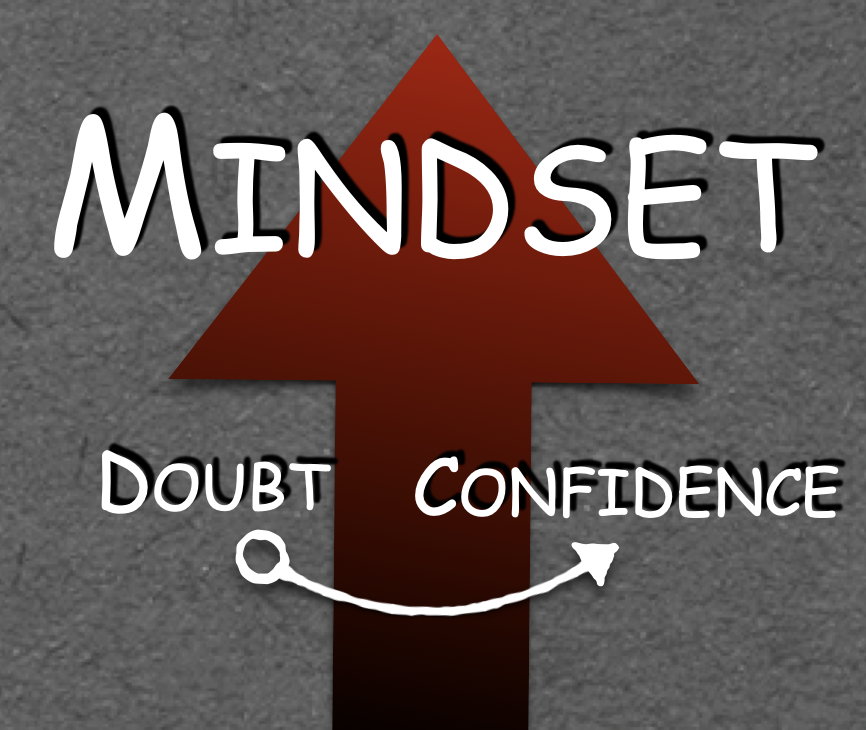
Coaching with a growth mindset requires us to embody this attitude of developing potential with every action we take...
It shows in how we praise our athletes.
We can’t just praise their talent, their effort or the outcome. We have to use praise to highlight the process they used in their attempt to overcome a problem. A constant focus on the process is the important part. Showing them that we appreciate their effort to understand the problem and their attempt to work through a strategy (or multiple strategies) to learn deeper about how to solve the problem.
It shows in how we discuss set backs.
We can’t let them get discouraged about a bad training session, a loss, an injury or lack of improvement. We have to reshape the set back as an opportunity to learn. We learn best through temporary failures. If we let it, our brain will become hyper focused on the details in a failed attempt. And we can use this to create a new strategy, or process to take to find success. This deepens our understanding of what works, what doesn’t and why.
It shows in how we define learning.
We can’t limit our focus to memorization, or mimicking a specific way of doing something. Mimicking the actions of others is the illusion of understanding. It allows us to temporarily feel as if we are improving, until we get into a competitive environment where situations change, environment changes and the speed requirements are much higher. We need to get athletes to understand what they are doing and why they are doing it, and how they might need to change under different conditions.
If we can get them to want to understand the problem, excited to gain experience as they work through failed attempts, maintaining their focus and effort through hundreds of repetitions, ultimately finding the best solution for them to use in each specific situation…then we have coached them with a growth mindset.
The goal is to develop a player who fully understands what they are trying to do in training. Who is excited about the skills and abilities they are trying to develop. With the belief that they can develop these traits through hard work, focused efforts and a deeper understanding. All while becoming increasingly more interested in the process of developing these traits.
Coaches need to be teachers, and athletes need to be learners. And we both need to remain open minded during the journey we embark on together. We have to be honest and with our assessments and focused on taking small steps in the right direction each day. Stacking small wins, deepening our understanding, and finding interesting aspects about the process each day.
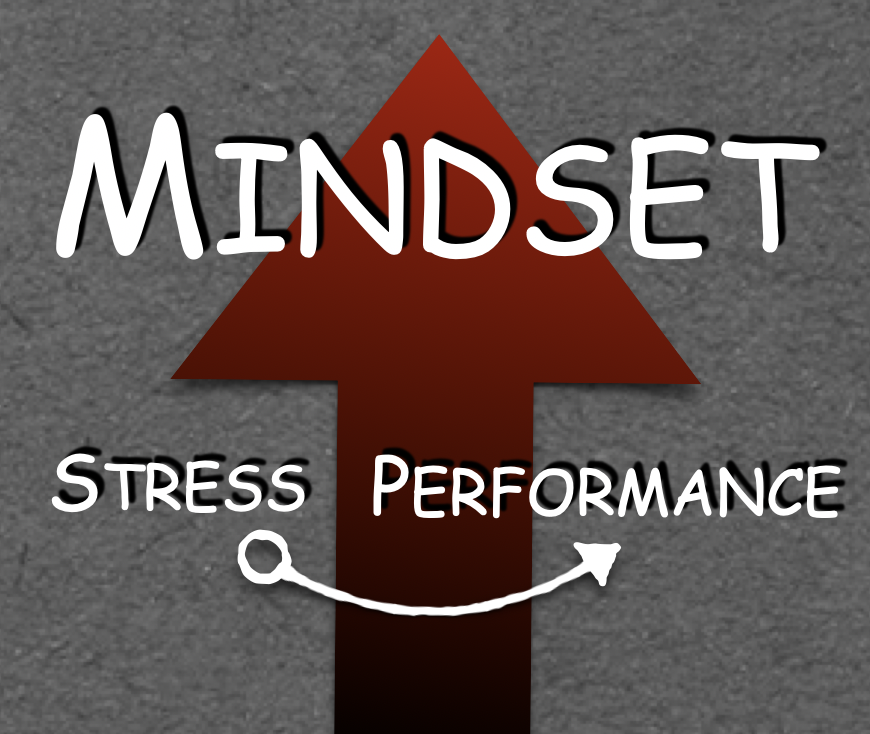
Stress is neutral…it’s not good or bad. It’s natural, unavoidable and quite necessary for our athletes to achieve their goals. Where the problem lies, is how we perceive stress. Our attitude towards stress and our mindset about what that particular stress is going to do to us.
Take strength training for example. It is necessary to progressively stress the muscles in ways that they are forced to adapt. However, overloading the muscles with stress, or repeatedly stressing the same muscles could be detrimental. It’s about balance.
Stress before a big game is not going to go away. And in fact we need the nervous anticipation to focus our attention, heighten our awareness and kick our brain and our body into action. We can use this stress to improve our performance.
But if we let the stress consume us, connecting our identity to our success or failure, then the stress will likely impact us in a far more negative way.
The key is again…focusing our attention on attitude and action instead of performance and perception. For example, sometimes we make mistakes in big moments of a game. Growth mindset people, will look at the action and dissect it, looking for ways to improve. Learning from the experience. Anxiously awaiting the next opportunity to perform, but this time with a new perspective and more experience to work with. Fixed mindset people will dwell on the fact that they made the mistake and the perception of those around them. Internalizing their subpar performance and attaching it to their limitations.
We can’t control our feelings. Of course we will be upset in the moment, but we need to accept it quickly and move on. Focusing our attention on the learning opportunity those experience afforded us.
In fact, errors are often the best teachers. They stimulate the brain to adapt. If we search for understanding as we commit the errors, accepting feedback and working through an alternate strategy. The stress goes away.
We no longer tie our self worth to the event, and instead see ourselves as a developing prospect, not fearing failure, but embracing the challenge.
In training sessions, I like to use the progressive overload principle when teaching new concepts. We start with the familiar to build confidence. Then we begin to progressively challenge the speed, loading or complexity of the movement or skill. We reward the athletes effort and focus as the stress increases. Through this challenging process, we ultimately reach a point of confusion, failure or technical breakdown.
In this moment, coaching is critical. We get excited about the challenge. We applaud their willingness to try, and we explain the movement in more detail. We make a few adjustments and then we ask them to try again. Growth mindset athletes will jump at the challenge. Fixed mindset people will shy away from the challenge, assuming they are not good enough.
The fixed mindset athletes see the additional stress as an opportunity to fail, while the growth mindset athletes see it as an opportunity to learn.
If we view stress as necessary to improve performance, and we have a growth mindset, anticipatory stress is often reduced. That nervousness goes down a bit and is replaced with excitement.
I look back at my athletic career. Some sports I was always told I was great (by parents, coaches, etc.). And in those sports, I always found the games to be stressful, I was nervous and many times I felt as if I didn’t live up to expectations. In other sports, I knew I wasn’t elite, but I really loved the games. I worked so hard to keep up, and people commented on my effort and physicality. I was still nervous before games, but always related it to being excited to compete, not scared to fail.
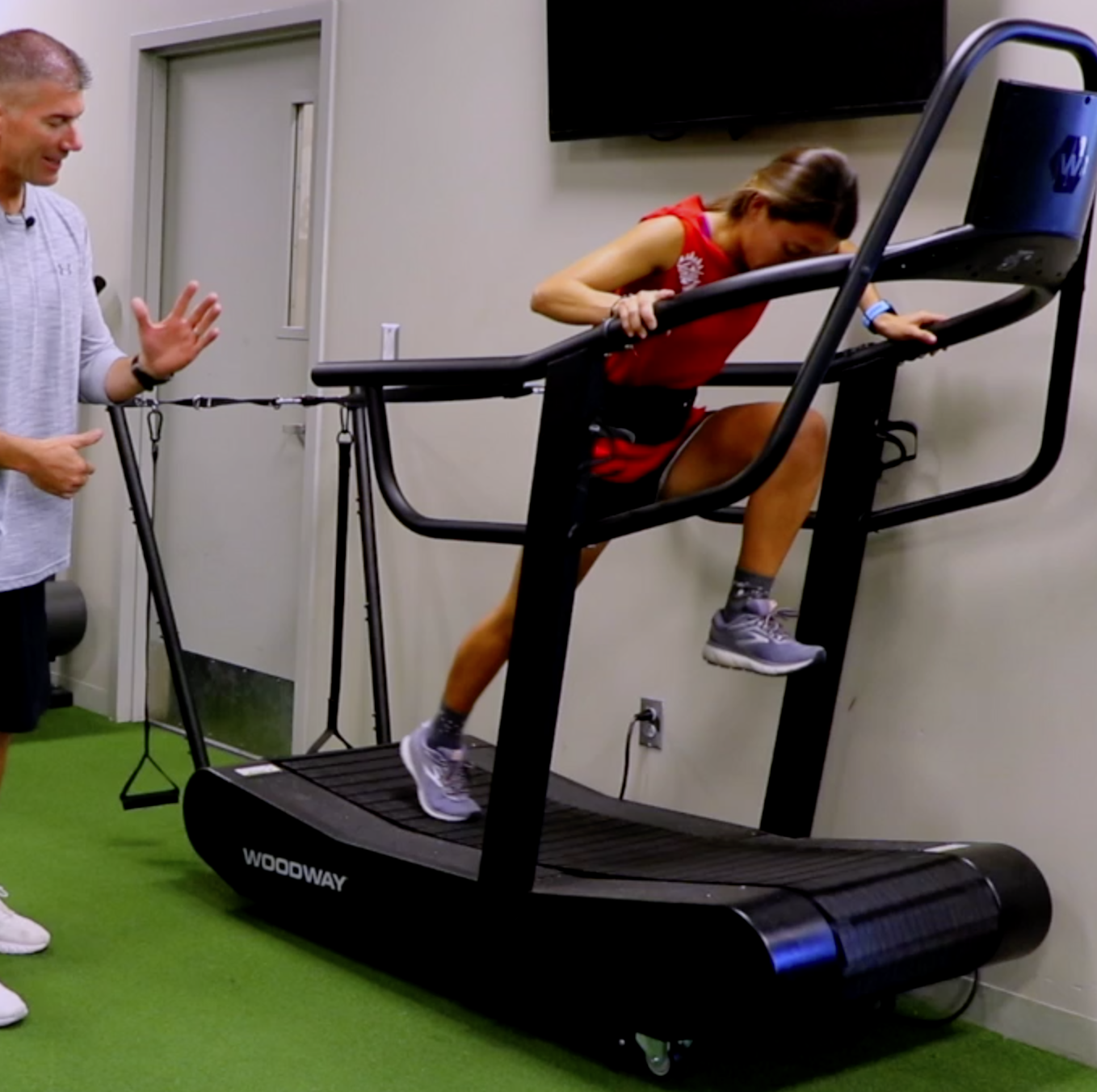
PURSUING MASTERY
I think there are 3 primary requirements for athletes pursuing master of their craft.
- Hyper-Intentionality
- Concentrated Efforts
- Feedback & Coaching
They have to be able to fight through the hard times, feelings of fear, self doubt or impatience. And focus their thoughts and training on intentional, concentrated efforts while being open to feedback. Welcoming temporary failure as a chance to learn, and remaining excited (and interested) in the challenge to improve...
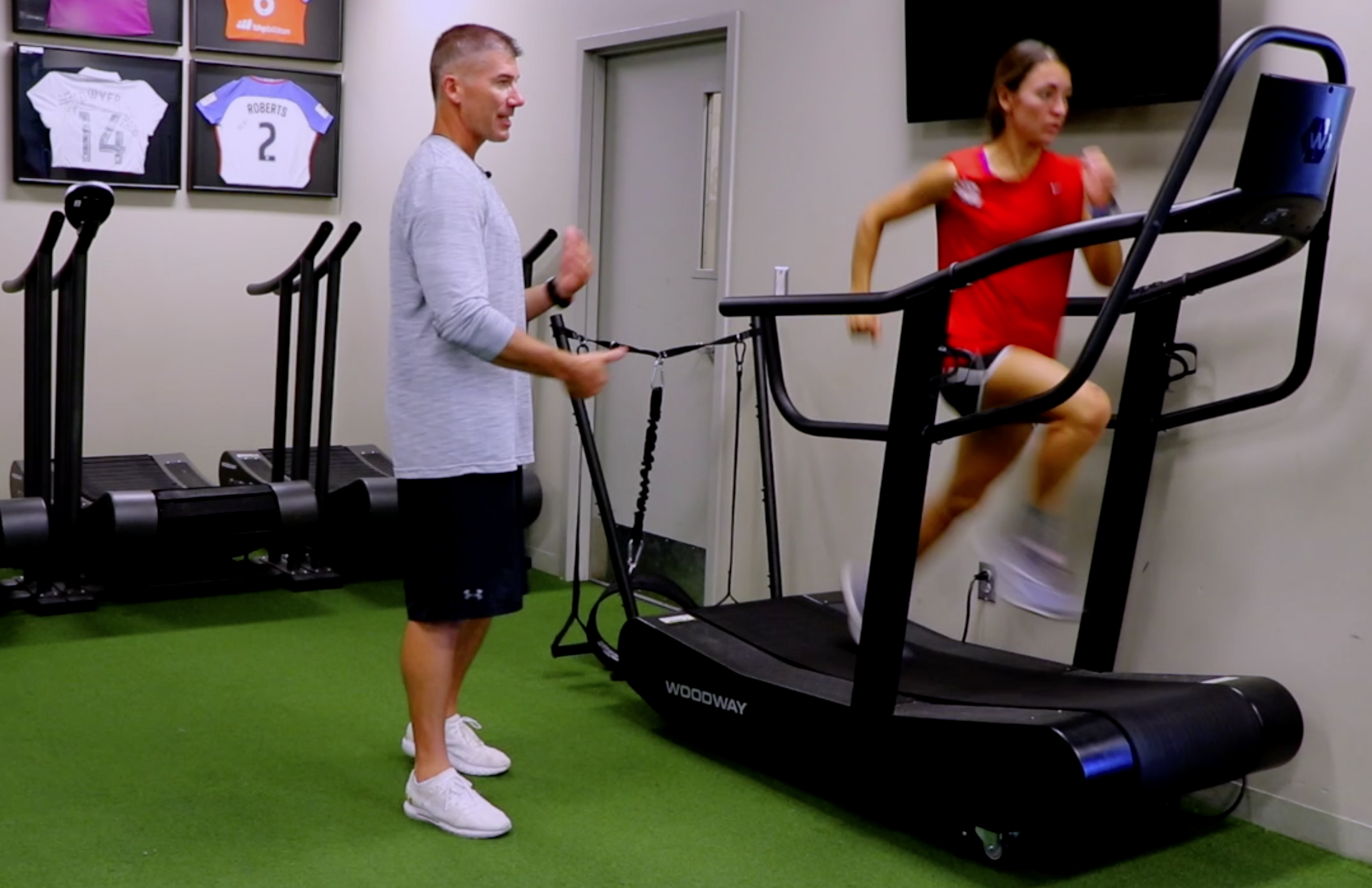
To understand how some athletes find success and mastery, we first need to understand why most will give up long before they reach their goals.
There are 3 reasons why we fail at something...
- Lack of Confidence in Our Ability
- Lack of Perceived Value
- Effort is Not Worth the Reward
Basically, those that come up short lose interest. We stop wanting to learn, and have difficulty focusing through the failed attempts. If we can't stick with a task long enough to see the task with clarity, see the details and understand the process, we never truly believe we can master it. We assume we aren't good enough, or that it's going to be too difficult. And in many cases we discover that we just feel that we want to expend the time, energy and effort to chase the goal anymore.
In my opinion, its less about talent and more about interest that leads to mastering a task. I have worked with so many talented players, that never reached their true potential, simply because they lost interest in the work. But on the other side of the spectrum, I have worked with quite a few players who didn't have that natural talent or ability, who went on to achieve great things. These players had one thing in common...they were interested.
Being interested to the point of obsessiveness is the foundation for doing great work in any field. To get there, you have to be passionate about the process of learning.
When you are chasing something you are passionate about, you see the failed attempts as fun challenges that teach you something new. You use challenges to test your progress and guide your understanding. When others are becoming bored with the training, you are becoming more interested. You approach it with a deep curiosity and your focus becomes hyper-intentional about mastering the details.
But there is something more..
In every field, those that reach a level of mastery can point back to a specific coach or mentor that helped them find focus, challenged them, and guided them through their failures while maintaining a positive focus on the interesting aspects.
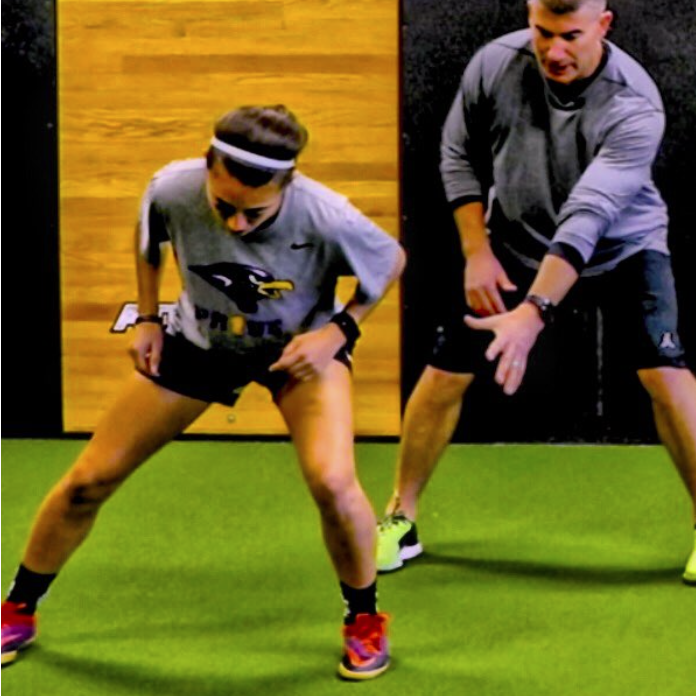
Most athletes don't know what their interested in when they are younger. They like the sport, like having friends to train with, and things seem to come easy. But they haven't yet dug deep enough to figure out if they are really interested in putting in enough effort to truly master the game.
I have learned over the years that the methods of introduction are essential.
- Introduce skills in seemingly attainable manner
- Build interest and value becomes apparent
- Stack small wins, confidence increases, rewarded for our efforts
If we are introduced to something in an interesting and simplified progression, we begin to see how things fit together, how they work, and the attainable details come into view.
If we become interested and feel that what we seek is attainable through a little focused effort, we become open to feedback, coaching, critical evaluation. We begin to observe others with intentionality and a desire to learn. We direct our focus to the details, or the process, not the outcome. We fall in love with the steps required to reach our goal, and our passion becomes intrinsic or harmoniously inline with the process. We begin to care more, we develop a desire to learn, even through failure, and the desire to get recognition for our actions diminishes (it doesn’t matter as much as our own feelings about the process), even in success.
As we continue on, we master the basic skills and begin to take on new and interesting challenges. The process makes sense, and our understanding reaches a new level. We begin to use our basic skills in unique variations, unlocking creative new ways of navigating the task under different conditions.
We see connections that were hidden in the beginning, and gain confidence in our problem solving ability. We overcome difficult situations through deep and deliberate focus and endure the hard times through our own intrinsic interest and passion for the process.
Soon our own thoughts and experiences begin to guide us to new and creative processes. We navigate the unknown areas with confidence and interest and we begin to formulate our own thoughts, our own unique way of doing things, and our own theories.
Instead of mimicking the path of others, we create our own path and we begin to openly debate our ideas with confidence, test our skills against the best, and endure difficult times because we have a deep seeded interest in what we are doing.
It starts with intrinsic passion (exploring what we find both interesting and easy), drawing motivation from our successes and our desire to understand. Then we demand to be coached. We must be open to feedback and humble enough to accept it in the beginning. We must identify the basic requirements and perfect the necessary skills. This unlocks the confidence to explore the more difficult skills, adverse conditions and unique variations. In this we begin to find our way, understand more deeply and see the hidden aspects that trip up others.
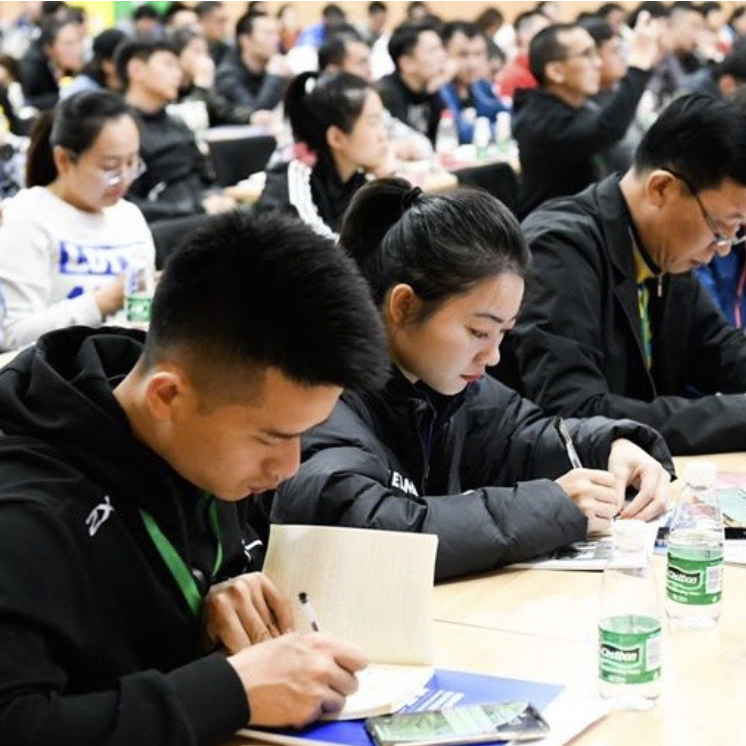
Goal Setting: Strategies for Real Success
Should goals be subjective or objective? Intrinsic or Extrinsic? Finite or Infinite? Should we even focus on goals at all? Setting goals can be great, but they can also detract us from what really matters most.
This article started with a discussion I had with my daughter about setting "goals" for her psychology class...Click on the gray boxes below to ready more about our conversation.
In a discussion with my daughter on goal setting in school, she mentioned that her teacher was encouraging her to set detailed and specific, objective goals instead of a vague subjective approach. And while this strategy is common, I believe it’s a bit limiting.
I asked her what she put down as her goal. “To get an A in the class and score above a 90 percent on all tests.” So I asked her, is your motivation more intrinsic or extrinsic. Are you chasing numbers and validation from your teacher, or are you looking to find things that interest you within the material and learn how to use what you learn in your daily life?
She said that the if she had a goal focused on looking for interesting aspects and learning, that would be too subjective, and she would have been asked to make it more objective. I asked, “Is it bad to have a subjective main goal?”
She asked, “What would you have answered.”
I would have said, my main goal is to find interesting things in each chapter and come up with ways that I could use lessons learned from the content to expand my ability to make better decisions, have deeper conversations and a clearer understanding of the subject.
She said you have to have details.
So I continued…That would be my main goal (a subjective view of success), then I would put a plan together as to how I would chase my goal. I would read each chapter looking for interesting aspects. Then I would reflect on what I read, and write down my thoughts. Then I would try to have 2-3 conversations with different people, explaining what I have found interesting in my own words. I would be open to other peoples opinions, ideas and experiences, and attempt to learn from their experiences, giving me perspective. If I could hold conversations, explain my thoughts with clarity and debate with more experienced people on the subject, then I would feel as if had taken a huge step in terms of actually learning the content.
Then she said, “But we have to memorize key facts, dates and definitions for the test. If you don’t do that you might not score well.”
I asked her, are you chasing numbers or knowledge? Are you seeking validation from her that you know the content, or are you trying to find interesting things within the content that will help you in life? If I want facts, I could Google them in a matter of seconds…I don’t need school for that. But if I want to understand the concepts I need to know more than the facts and data.
I said, some say that "memorization of facts is the illusion of knowledge" (Shane Parrish, TKP).
The real goal should be to acquire knowledge that gives you confidence to hold your own in debates, engage in interesting conversations, and offer unique ideas, while still being open to the ideas of others. In the end, gaining wisdom and a much broader view of the subject matter. In doing this, you will form a more well rounded view of the world, solidify your values and understand more about your own identity, interests and skills.
She said, “My teachers would hate you…”
In a nutshell, I think it comes down to why we are studying the content. Are we looking to learn isolated facts, or searching for interesting connections, and forming our own ideas?
If we learn enough to have our own opinion on a concept, we can actively discuss the concept with others. If we stay open to the possibility that our opinion will change over time as we gather more insight, we stay inquisitive and curious.
Over time, as we accumulate more experiences, our opinions become more solidified and shape our values. We validate our opinions with historical data collected from our own experiences as well as the experiences of others. And even if we don’t have the opportunity to experience it first hand, we can draw upon the conversations we have had with others who have first hand experience.
So it really comes down to are we playing a finite game or an infinite game…Do we see the accumulation of knowledge as something with an end point, or something that is never ending, open to modification and continuously being refined. In sport, games are finite. There is a winner and a loser. There’s a set time, or a score to reach. And when it’s over, there is no doubt who won or lost.
However, the development of skill within a sport is an infinite game, where we are continuously developing, learning new skills, refining acquired skills under different conditions and learning to vary our skills in unique ways based on changing tactical demands.
I think looking at school as a finite game is short sighted. Quizzes, tests, graduations, etc can lead us to believe that we have mastered the material. When in fact we have just memorized facts, giving us the illusion of knowledge. Instead, we should look at school (and life or sport) as an infinite game.
In taking this approach, we look to understand, acquiring knowledge and putting our skills to the test though conversations, accumulating experiences and continuously assessing our skills, understanding and opinions. This leads us to form our own identity, becoming more innovative as we are not chained to the ideas of others, but have both the confidence and the wisdom to look outside the box, connecting our experiences with our understanding and not fearing the pursuit of the interesting unknown.
